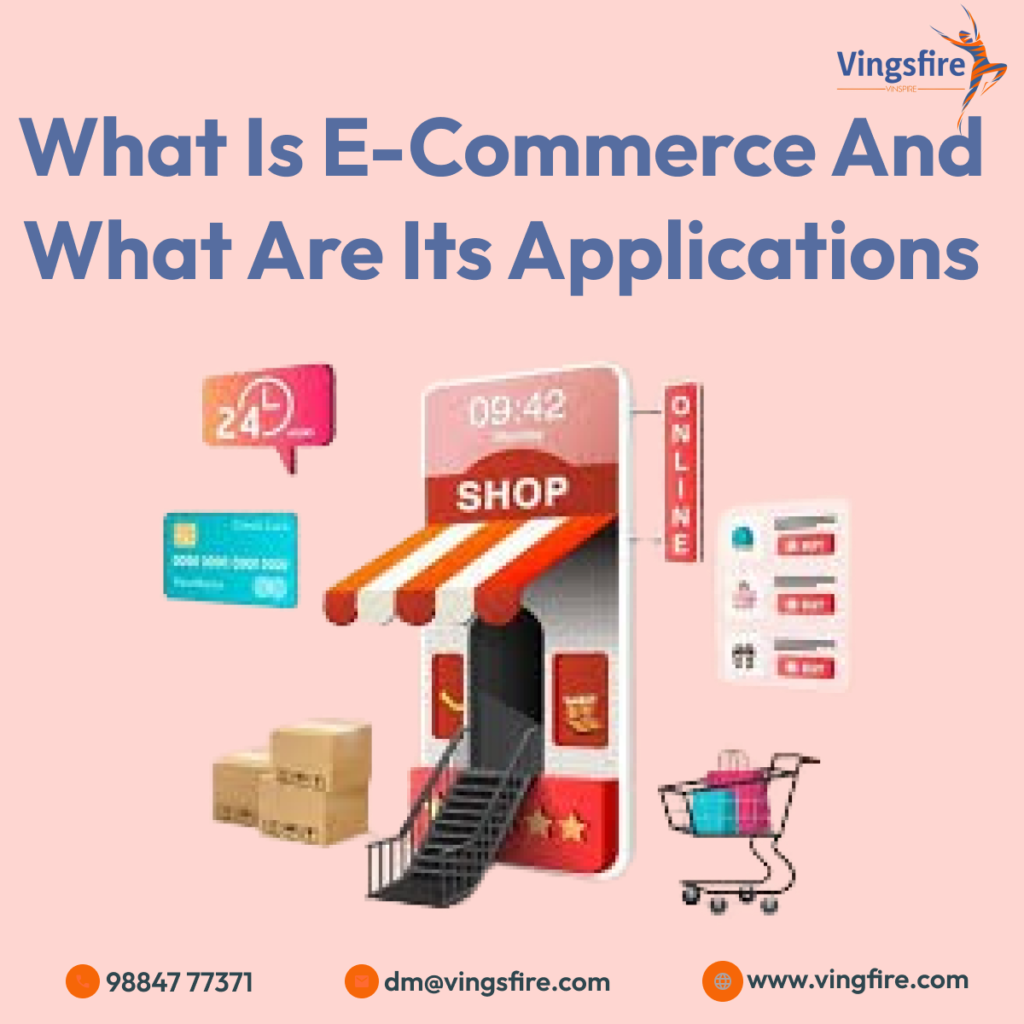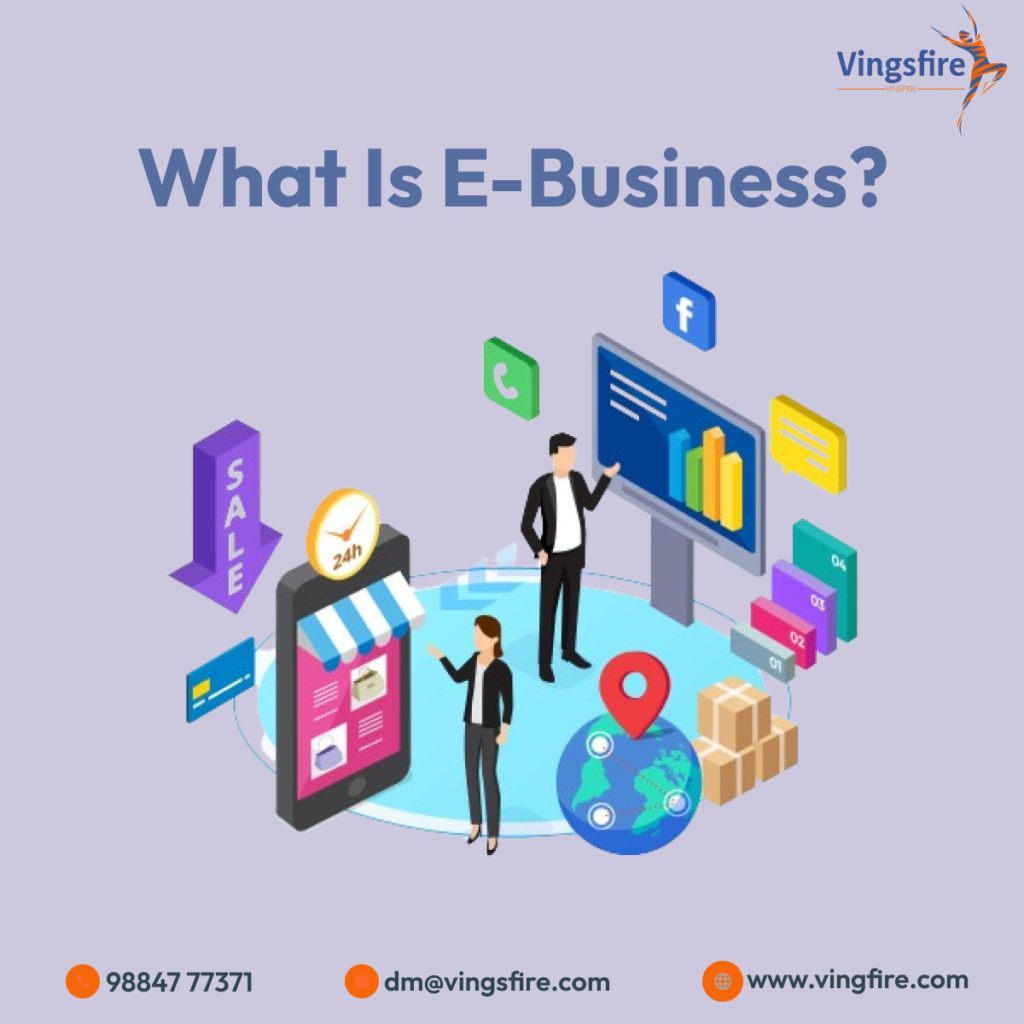Introduction:
In the fast-paced digital era, the terms “E-Commerce” and “E-Business” are often used interchangeably. However, they represent distinct concepts that play crucial roles in the online business landscape. This blog aims to unravel the differences between E-Commerce and E-Business, shedding light on their unique characteristics and highlighting their importance in the digital realm.
Learn More About Vingsfire:-
1.LINKEDIN
2.FACEBOOK
Defining E-Commerce:
E-Commerce, short for electronic commerce, refers to the buying and selling of goods and services over the internet. It involves online transactions, electronic data interchange, and online payment systems, making it a subset of the broader E-Business framework. The primary focus of E-Commerce is the exchange of products or services between businesses and consumers, or between businesses themselves.
Key Features of E-Commerce:
Online Transactions: E-Commerce relies on digital platforms for the buying and selling of goods and services, facilitating seamless online transactions.
Payment Gateways: E-Commerce platforms integrate secure payment gateways, ensuring safe and efficient electronic transactions between buyers and sellers.
Consumer-Focused: E-Commerce primarily caters to end consumers, providing them with a user-friendly interface to browse products, make purchases, and track orders.
B2C and B2B Transactions: E-Commerce encompasses both Business-to-Consumer (B2C) and Business-to-Business (B2B) transactions, serving individual customers and facilitating trade between businesses.
Understanding E-Business:
E-Business, on the other hand, is a broader concept that encompasses all aspects of running a business using digital technology. It includes not only E-Commerce but also various other online activities such as customer relationship management (CRM), supply chain management, and electronic communication. E-Business is a comprehensive approach to leveraging digital tools and technologies for overall business operations.
Key Features of E-Business:
Holistic Business Approach: E-Business covers a wide spectrum of digital activities beyond transactions, including marketing, communication, collaboration, and internal processes.
Integration of Systems: E-Business involves the integration of various digital systems and technologies to streamline business processes and enhance overall efficiency.
Customer Relationship Management (CRM): E-Business focuses on building and managing customer relationships through personalized interactions, feedback mechanisms, and customer support systems.
Supply Chain Management: E-Business incorporates digital tools for managing the entire supply chain, from production to distribution, ensuring a seamless flow of goods and services.
Distinguishing Factors:
While E-Commerce and E-Business share the common ground of conducting business in the digital realm, the key distinction lies in their scopes. E-C is primarily concerned with online transactions, whereas E-Business encompasses a more comprehensive approach to digital business operations.
Importance of E-Commerce and E-Business:
Global Reach: Both E-Commerce and EB enable businesses to reach a global audience, breaking down geographical barriers and expanding market reach.
Efficiency and Automation: The digital nature of E-C and E-B allows for automation of various processes, reducing manual efforts and enhancing overall operational efficiency.
Data-Driven Decision Making: E-Business relies on data analytics to make informed business decisions, providing valuable insights into customer behavior, market trends, and performance metrics.
Adaptability: Businesses that embrace E-Commerce and E-Business are more adaptable to the evolving digital landscape, staying competitive in an ever-changing market.
Conclusion:
In conclusion, while E-Commerce and E-Business are interconnected, they serve distinct purposes in the digital business ecosystem. E-Commerce revolves around online transactions, focusing on buying and selling goods and services, while E-Business takes a holistic approach, incorporating digital tools for various business processes. Embracing both concepts is essential for businesses looking to thrive in the digital age, ensuring a comprehensive and adaptive approach to online operations.










